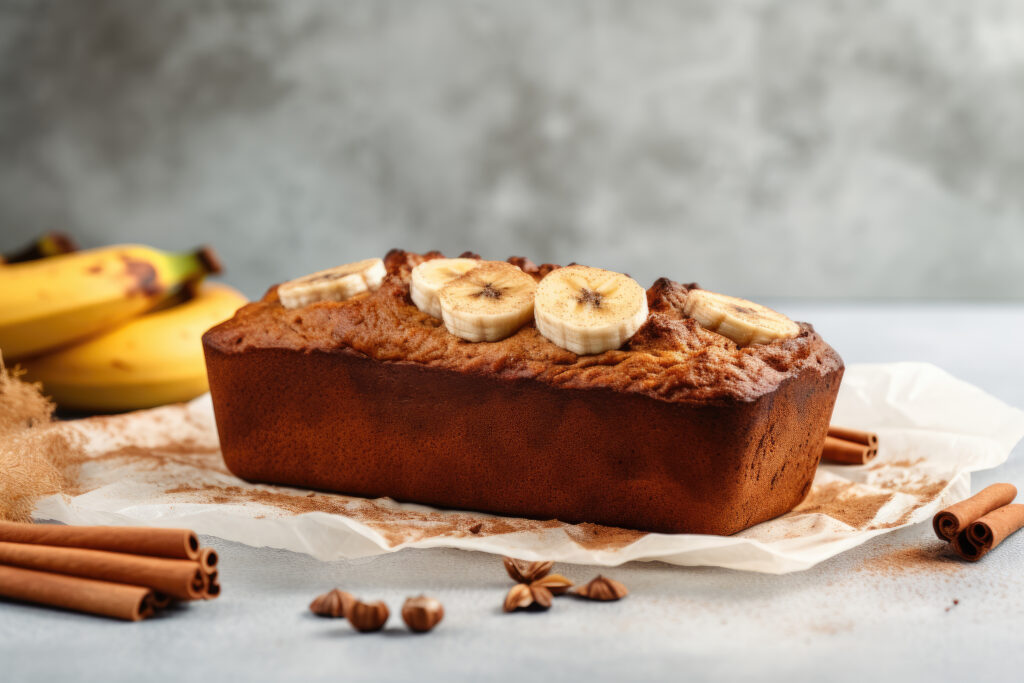Banana bread has become a staple in kitchens worldwide, cherished for its versatility, nostalgic aroma, and comforting texture. Whether you’re a seasoned baker or a beginner trying to use up those overripe bananas, the process of making banana bread often raises questions. One common query is: Should you let banana bread batter rest before baking? This seemingly small step can make a big difference in the quality of your loaf. In this comprehensive guide, we’ll explore the science behind resting batter, its benefits and drawbacks, and practical tips to perfect your banana bread.

Understanding Resting Batter in Baking
Resting batter is a common practice in baking that involves allowing the mixed ingredients to sit undisturbed before transferring them to the oven. But why should you let banana bread batter rest before baking? While it may seem unnecessary, this step serves a critical purpose in achieving a loaf that’s moist, tender, and evenly baked.
Why Resting Batter Matters
Resting allows time for the ingredients to interact and stabilize. Here’s how this impacts your banana bread:
- Hydration of Ingredients
Resting lets the flour absorb moisture from the wet ingredients like mashed bananas, eggs, and oil or butter. This creates a smoother batter with a more uniform consistency, which translates to a tender crumb after baking. - Gluten Development
Overmixing batter activates gluten, which can make baked goods tough. Allowing the batter to rest relaxes the gluten, ensuring the bread remains soft. Learn more about gluten’s role in baking through this guide from King Arthur Baking. - Aeration for Lightness
Resting activates the leavening agents (baking soda or baking powder), creating tiny air bubbles that result in a lighter loaf.
Benefits of Resting Banana Bread Batter
Understanding the benefits of resting can help you decide whether this step is worth incorporating into your routine.
Enhanced Texture
By giving the batter time to rest, you improve its structure. The softened texture makes for a loaf that’s moist but firm enough to slice without crumbling. If you’ve ever wondered why your banana bread is dense instead of fluffy, resting may be the solution. Check out Why Is My Banana Bread Dense and Not Fluffy? for more troubleshooting tips.
Improved Flavor
Resting doesn’t just affect texture—it enhances flavor too. The natural sugars in bananas and the spices (like cinnamon or nutmeg) have more time to meld, resulting in a richer, more pronounced taste.
Consistent Baking Results
Resting helps the batter bake evenly. Without resting, you may end up with undercooked pockets or uneven rises. If you’re wondering should you let banana bread batter rest before baking, this benefit alone makes a compelling case.
Potential Drawbacks of Resting
While resting batter offers many benefits, there are a few considerations to keep in mind:
Time Management
Resting adds 15-30 minutes to your preparation time, which may not be ideal if you’re in a rush. However, this delay can be minimized by preparing other parts of your meal or cleaning up during the wait.
Overhydration Risk
If the batter sits for too long, it can become overly wet, leading to sogginess. This is especially true if the resting time exceeds 45 minutes or if the environment is humid.
The Science of Resting Time
Resting time is a balancing act. Too little, and you miss the benefits. Too much, and you risk altering the batter’s consistency. So, how long should you let banana bread batter rest before baking?
How Long Should You Rest Banana Bread Batter?
The sweet spot is typically 15-30 minutes at room temperature. This allows adequate hydration and gluten relaxation without the risk of overhydration.
Ideal Resting Conditions
- Room Temperature
Rest the batter in a cool, dry spot away from direct sunlight or heat sources. - Cover the Batter
Use a clean towel or plastic wrap to protect the batter from drying out or forming a crust.
What Happens If You Skip Resting?
Skipping this step won’t ruin your banana bread, but you may notice slight differences in texture and flavor. The loaf might be denser and less flavorful, particularly if you’re using a recipe with significant amounts of dry ingredients.
Practical Tips for Resting Batter
Optimize Your Resting Time
While waiting for the batter to rest, consider preheating your oven or preparing toppings like chopped nuts or chocolate chips.
Refrigeration: Yes or No?
Refrigeration can extend the resting period if you’re not baking immediately. However, it can also alter the texture slightly, so it’s best to bring the batter back to room temperature before baking.
Common Mistakes in Banana Bread Preparation
Even seasoned bakers can fall into these traps. By avoiding these pitfalls, you can ensure a perfect loaf every time.
Overmixing the Batter
One of the most common errors is overmixing. Excessive mixing activates too much gluten, leading to a dense, chewy loaf. For light and airy banana bread, mix just until the ingredients are combined.
Skipping the Resting Period
If your recipe suggests resting, skipping this step may lead to less-than-ideal results. The batter won’t hydrate properly, which can result in uneven baking.
Creative Variations to Try
Banana bread is endlessly versatile. For inspiration, explore recipes like the Fage Banana Bread Recipe, which substitutes Greek yogurt for a unique twist.
Here are some variations you might enjoy:
- Nutty Banana Bread: Add walnuts, almonds, or pecans for crunch.
- Chocolate Chip Banana Bread: Incorporate chocolate chips for a sweeter treat.
- Gluten-Free Banana Bread: Use almond or coconut flour for a gluten-free option.
FAQs About Banana Bread Batter
Should I Refrigerate Banana Bread Batter Before Baking?
Refrigerating batter is not necessary unless you’re preparing it in advance. If refrigerated, allow the batter to return to room temperature before baking to ensure even cooking.
Can Resting Batter Affect Baking Time?
Yes, rested batter tends to bake more evenly, which can slightly reduce baking time. Always check for doneness with a toothpick or skewer.
What If I Forget to Rest the Batter?
If you forget to rest the batter, don’t worry! While the results may not be as tender or flavorful, your banana bread will still likely be delicious.
Conclusion
Should you let banana bread batter rest before baking? The answer is yes—if you want to enhance the texture, flavor, and overall quality of your loaf. While not strictly necessary for every recipe, this simple step can take your banana bread from good to great.
Experiment with resting times and variations to discover what works best for your tastes. Whether you’re baking a traditional loaf or trying creative twists, banana bread is a comforting treat that’s always worth the effort.
For more tips and recipes, explore RecipesMint, your go-to resource for baking inspiration.
